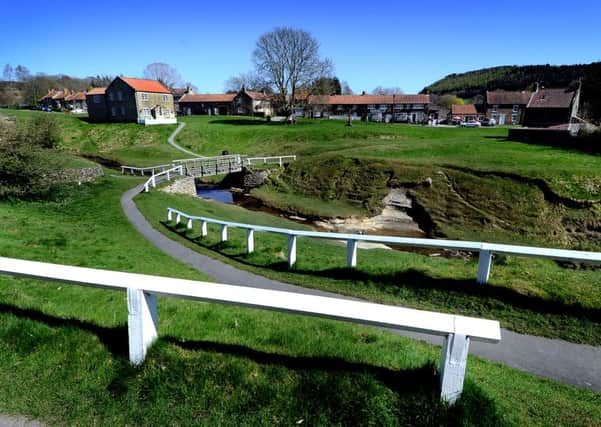Anne McIntosh: A green and pleasant land crying out for political will


It was an honour to represent, initially, the Vale of York and then Thirsk, Malton and Filey for 18 years in the House of Commons, culminating in my being elected to chair the Environment, Food and Rural Affairs Committee for five years.
However the rural economy in England is frequently overlooked. We hear a lot about city regions, devolution and the Northern Powerhouse. Yet the countryside is crying out for policies specifically aimed at the rural economy, such as more affordable housing, lower crime, better rural transport, with more frequent bus services, faster broadband – or even just a stable broadband connection – and better mobile phone coverage. Improved access to banks and post offices is also needed.
Advertisement
Hide AdAdvertisement
Hide AdWe have to eat, and those living and working in the countryside ensure that we have food on our tables.
The key things that need exploring are the importance of farming to the countryside and the rural economy; the importance of food security and the role farmers play; and how Britain is currently only 62 per cent self-sufficient in food production.
The Government is rightly seeking to add value through exports and, wherever possible, substitute imports – such as Shepherds Purse Cheeses, from near Thirsk, which competes with Roquefort cheese from France.
The Government should enthusiastically support public procurement of British products and we should all be proud to buy and eat British food. Opening up new markets, such as China, to products such as pigs’ trotters and other pig parts that we may not eat in this country, as well as dairy foods, would add multi-million pounds of exports.
Advertisement
Hide AdAdvertisement
Hide AdThe impact of late farm payments under the new CAP has been great on farming and the wider countryside and rural economy. Given the delayed payments from 2015, and the problems that the Rural Payments Agency has experienced with the new system, the recent announcement of partial payments is particularly welcome.
We must not lose sight of the fact that 88,000 applications are due, mostly by paper, since rural areas are simply not yet digitally enabled, or that some farmers have still not been paid from 2015. Farmers are seeking an extension to the deadline for the 2016 application of May 17, on which I hope the Government and Ministers will look favourably.
There is a particular problem for tenant farmers with basic farm payments. These payments should go to the active farmers, in this case the graziers on common land tending sheep, rather than the landowner who earns money elsewhere from shooting rights.
We must recognise problems with registration and mapping of common land, with the particular issue in North Yorkshire of a review being undertaken this year, whereby rights not registered this year may be lost, not to be revived.
Advertisement
Hide AdAdvertisement
Hide AdLooking ahead, I welcome the reforms promised by the EU Commissioner, Phil Hogan, in 2017 of a CAP that is simply too complicated. The six-day rule impacts on farmers. It is a standstill rule imposed after the 2001 foot and mouth outbreak. Restricting the movement of livestock, it disrupts trade and affects price. When will it be lifted?
The role of auction marts in rural areas should be recognised, setting prices and having a social role for farmers who often live in isolation.
The Groceries Code Adjudicator is doing valuable work but needs greater powers and the ability to investigate of her own initiative malpractice within the supply chain. Of particular concern are low prices in the dairy sector, where currently the adjudicator cannot intervene because this is an indirect supply chain.
Severe flooding of land threatens food security, as well as causing huge economic loss. Spending on flood defences is being hampered by not having a total expenditure budget through the merging of maintenance and capital spend into one operational budget. Regular and effective maintenance by way of dredging, desilting and clearing water channels reduces the flood risk.
Advertisement
Hide AdAdvertisement
Hide AdThe impact of rural crime is huge. There is theft on a grand scale of quadbikes and livestock, poaching and lamping. The cost of rural crime is estimated to be £800m, or £200 for every household in the countryside. A more visible police presence and speedier response times are called for.
We must see a greater supply of housing and affordable homes in rural areas. The planning issue must be addressed while respecting the rights of those already living there.
In conclusion, I hope Ministers will realise that we need to spend more to deliver public services in rural areas to ensure that we have GPs who can act as community hubs; that we keep all the community hospitals we have; that farming, tourism and other rural businesses continue to have their roles to play; and that those living in rural areas will not be left behind and will have the same per capita spend on health, education and broadband services as those living in urban communities.
Baroness McIntosh of Pickering is a Conservative peer who led a House of Lords debate on the rural economy. This is an edited version.